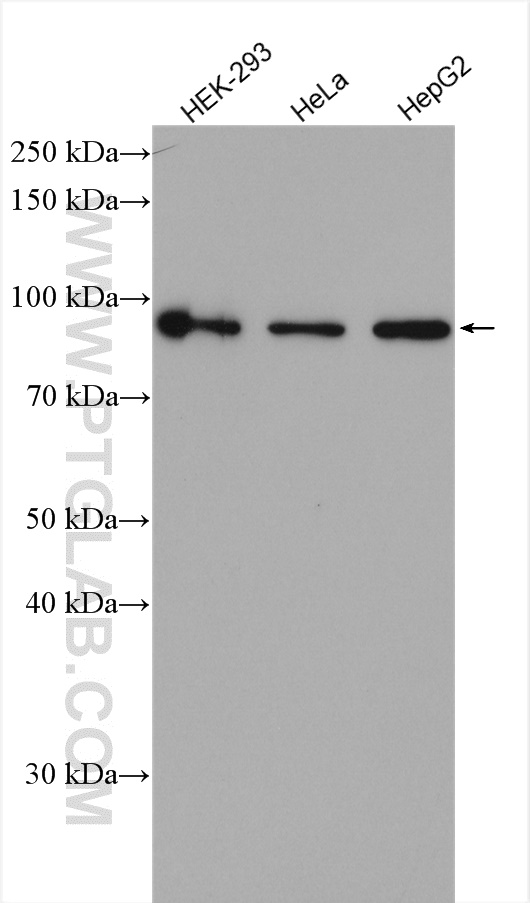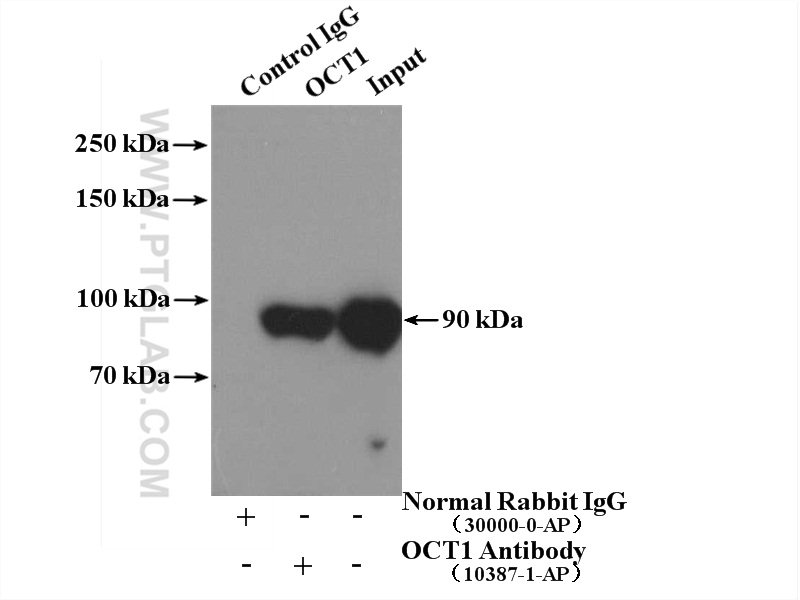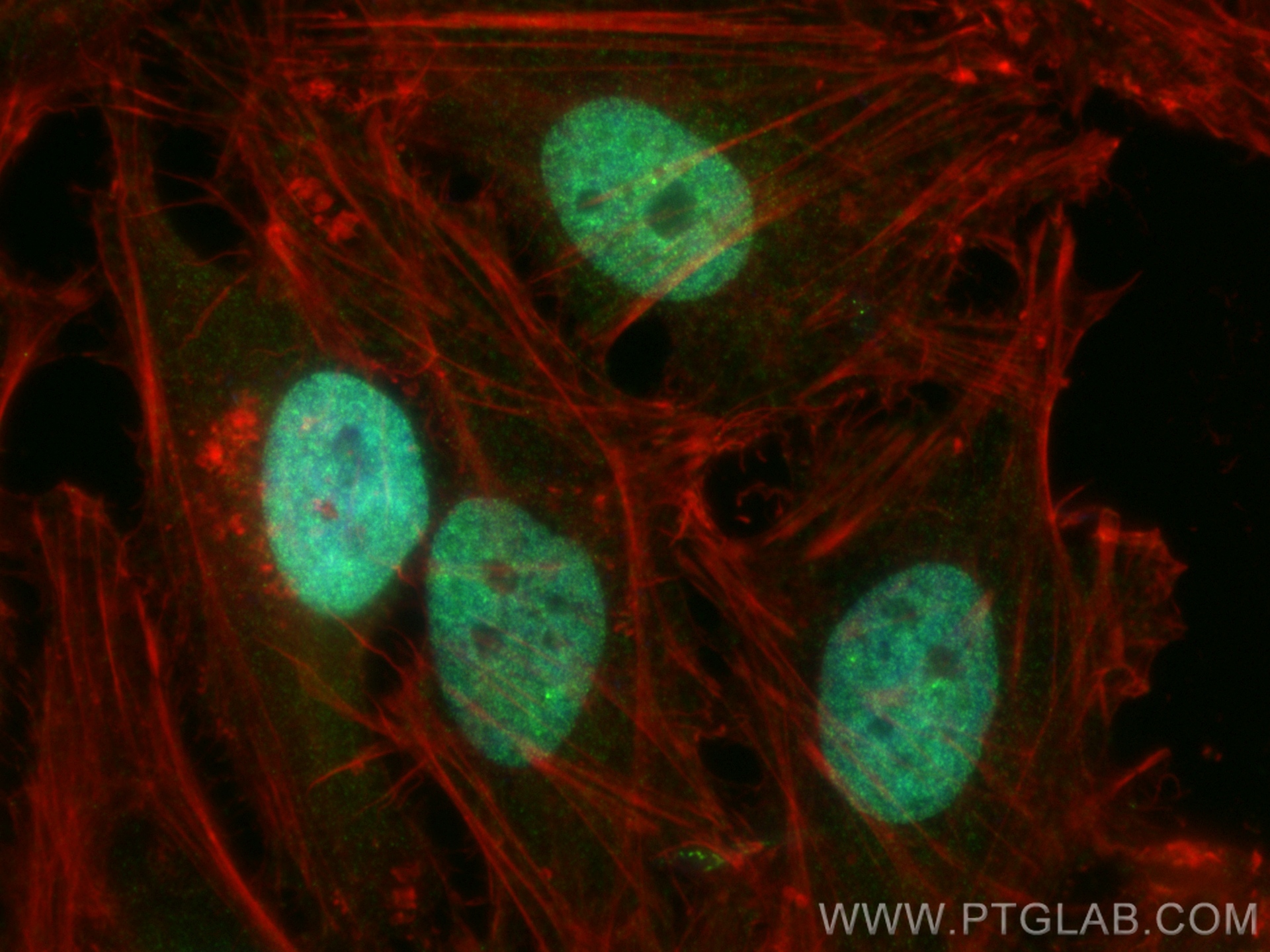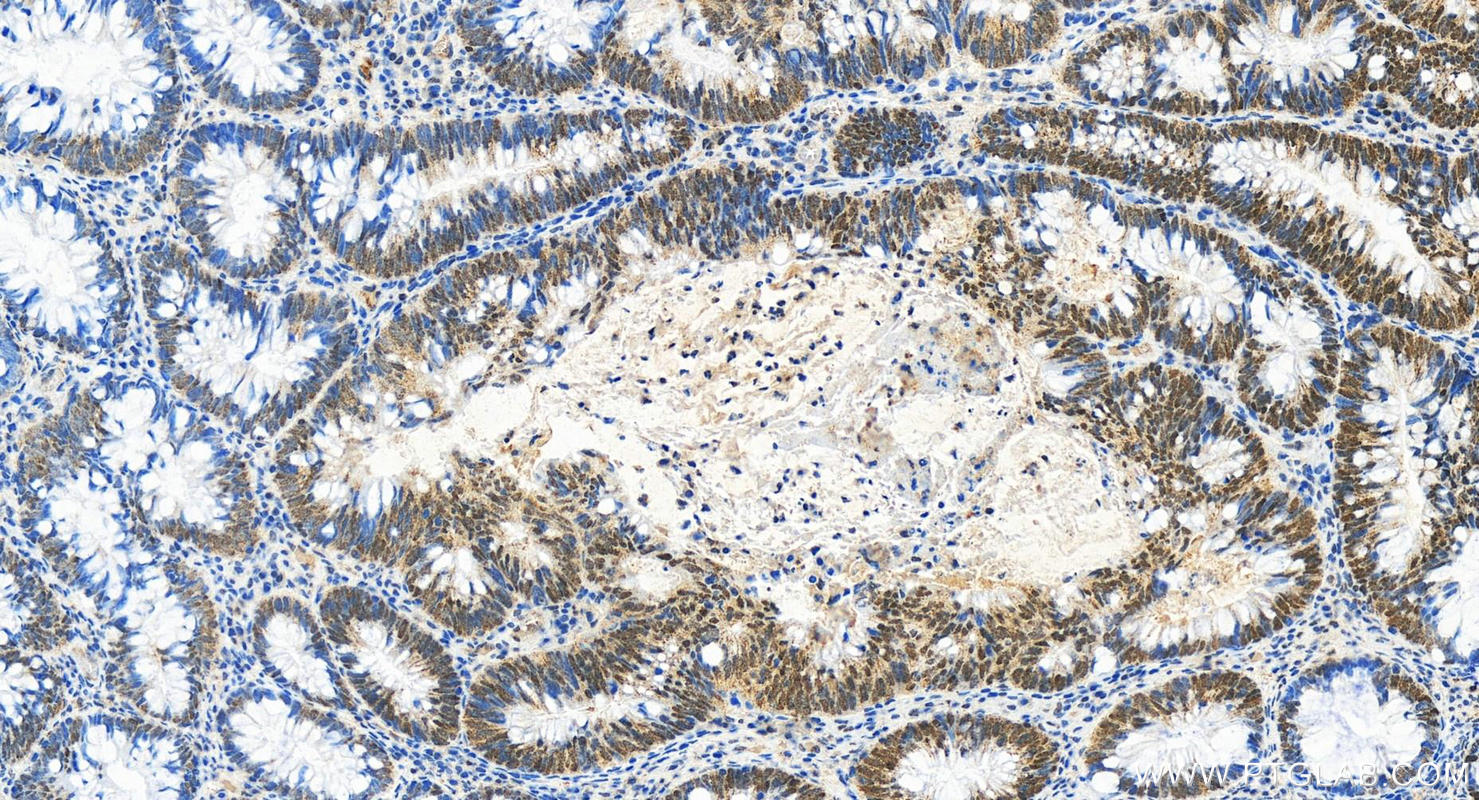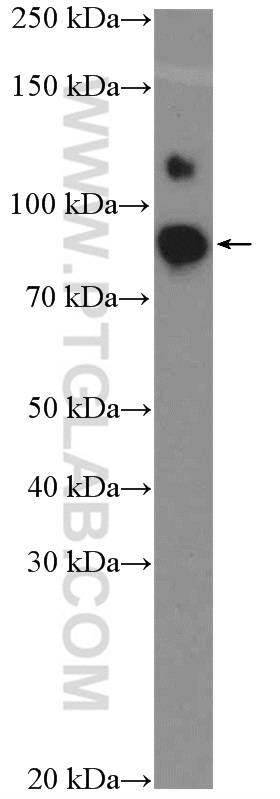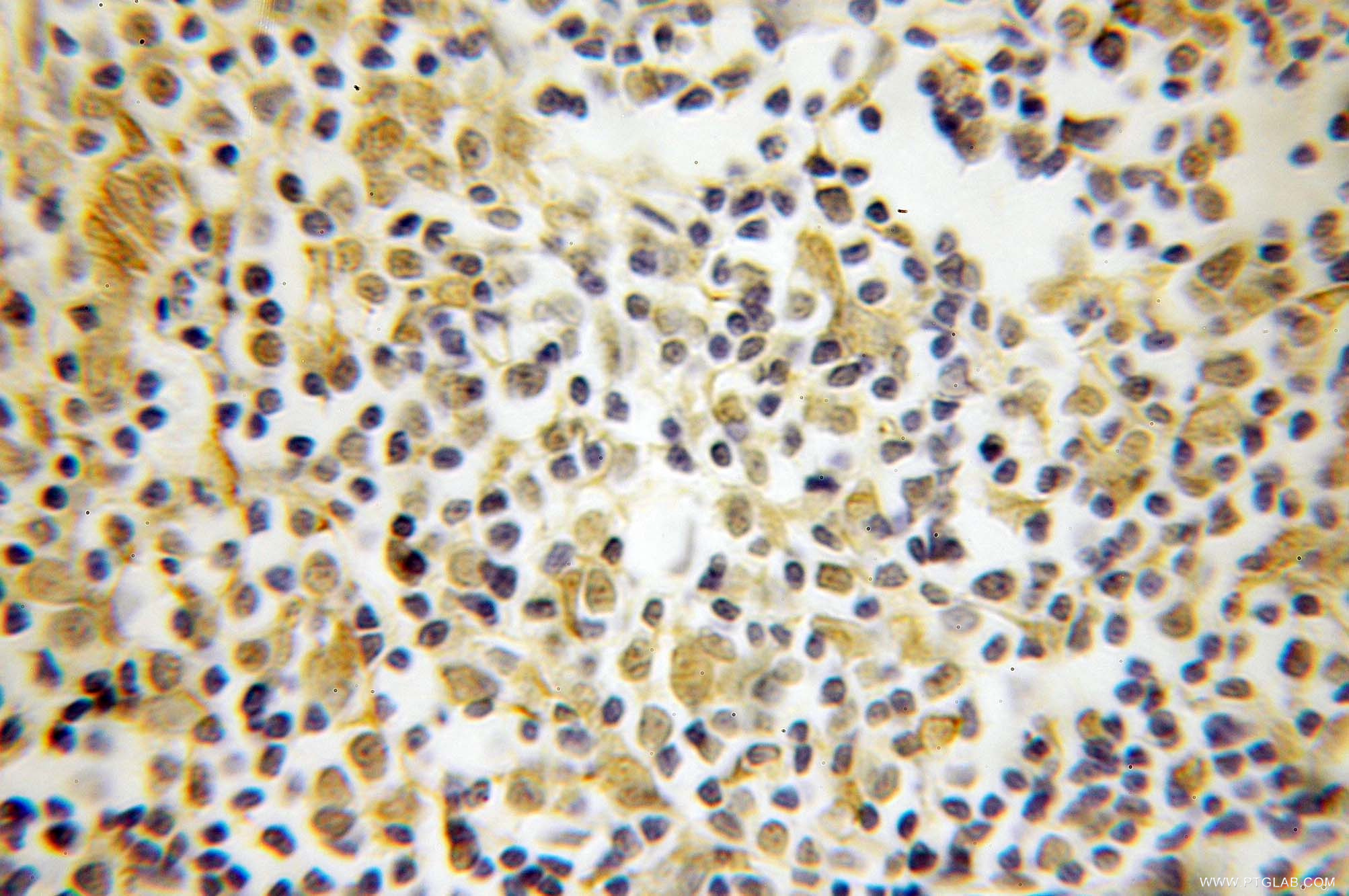验证数据展示
经过测试的应用
| Positive WB detected in | HEK-293 cells, NCCIT cells, HeLa cells, HepG2 cells |
| Positive IP detected in | HeLa cells |
| Positive IHC detected in | human colon cancer tissue, human lymphoma tissue Note: suggested antigen retrieval with TE buffer pH 9.0; (*) Alternatively, antigen retrieval may be performed with citrate buffer pH 6.0 |
| Positive IF/ICC detected in | HeLa cells |
推荐稀释比
| 应用 | 推荐稀释比 |
|---|---|
| Western Blot (WB) | WB : 1:2000-1:12000 |
| Immunoprecipitation (IP) | IP : 0.5-4.0 ug for 1.0-3.0 mg of total protein lysate |
| Immunohistochemistry (IHC) | IHC : 1:1000-1:4000 |
| Immunofluorescence (IF)/ICC | IF/ICC : 1:500-1:2000 |
| It is recommended that this reagent should be titrated in each testing system to obtain optimal results. | |
| Sample-dependent, Check data in validation data gallery. | |
产品信息
10387-1-AP targets OCT1 in WB, IHC, IF/ICC, IP, ChIP, ELISA applications and shows reactivity with human samples.
| 经测试应用 | WB, IHC, IF/ICC, IP, ELISA Application Description |
| 文献引用应用 | WB, IHC, IF, ChIP |
| 经测试反应性 | human |
| 文献引用反应性 | human, mouse, rat, pig |
| 免疫原 | OCT1 fusion protein Ag0586 种属同源性预测 |
| 宿主/亚型 | Rabbit / IgG |
| 抗体类别 | Polyclonal |
| 产品类型 | Antibody |
| 全称 | POU class 2 homeobox 1 |
| 别名 | OTF1, Octamer-binding transcription factor 1, Octamer-binding protein 1, Oct-1, NF-A1 |
| 计算分子量 | 76 kDa |
| 观测分子量 | 90 kDa |
| GenBank蛋白编号 | BC003571 |
| 基因名称 | POU2F1 |
| Gene ID (NCBI) | 5451 |
| RRID | AB_2167052 |
| 偶联类型 | Unconjugated |
| 形式 | Liquid |
| 纯化方式 | Antigen affinity purification |
| UNIPROT ID | P14859 |
| 储存缓冲液 | PBS with 0.02% sodium azide and 50% glycerol , pH 7.3 |
| 储存条件 | Store at -20°C. Stable for one year after shipment. Aliquoting is unnecessary for -20oC storage. |
背景介绍
The POU class 2 homeobox 1 (POU2F1), also known as octamer-binding transcription factor-1 (OCT-1), is a ubiquitous nuclear protein that regulates the transcription of target genes by binding to a cis-acting octamer element(5'-ATTTGCAT-3'). It participated in the regulation of housekeeping genes, including histone H2B and snRNAs, for cell differentiation and proliferation [PMID:3462701]. In addition, it functions as a cellular stress sensor that modulates activities of tissue-specific target genes involved in immune and inflammatory responses [PMID:16322220]. It also acts as a repressor for the cytokine-inducible, NF-kB-dependent expression of E-selectin and the vascular cell adhesion molecule during vascular inflammation. Otherwise, it can interact with nuclear hormone receptors, such as the retinoid X receptor, the thyroid hormone receptor and the glucocorticoid receptor, and influence their transcription activity[PMID:17192276].
实验方案
| Product Specific Protocols | |
|---|---|
| WB protocol for OCT1 antibody 10387-1-AP | Download protocol |
| IHC protocol for OCT1 antibody 10387-1-AP | Download protocol |
| IF protocol for OCT1 antibody 10387-1-AP | Download protocol |
| IP protocol for OCT1 antibody 10387-1-AP | Download protocol |
| Standard Protocols | |
|---|---|
| Click here to view our Standard Protocols |
发表文章
| Species | Application | Title |
|---|---|---|
Mol Biol Evol Long-term artificial selection reveals a role of TCTP in autophagy in mammalian cells. | ||
Food Funct Anti-hyperuricemic potential of stevia (Stevia rebaudiana Bertoni) residue extract in hyperuricemic mice | ||
Food Funct Ferulic acid supplementation alleviates hyperuricemia in high-fructose/fat diet-fed rats via promoting uric acid excretion and mediating the gut microbiota | ||
Cell Oncol (Dordr) The POU2F1/miR-4490/USP22 axis regulates cell proliferation and metastasis in gastric cancer. | ||
iScience MASTL is enriched in cancerous and pluripotent stem cells and influences OCT1/OCT4 levels.
| ||
Mol Cell Endocrinol MiR-451a attenuates free fatty acids-mediated hepatocyte steatosis by targeting the thyroid hormone responsive spot 14 gene. |
